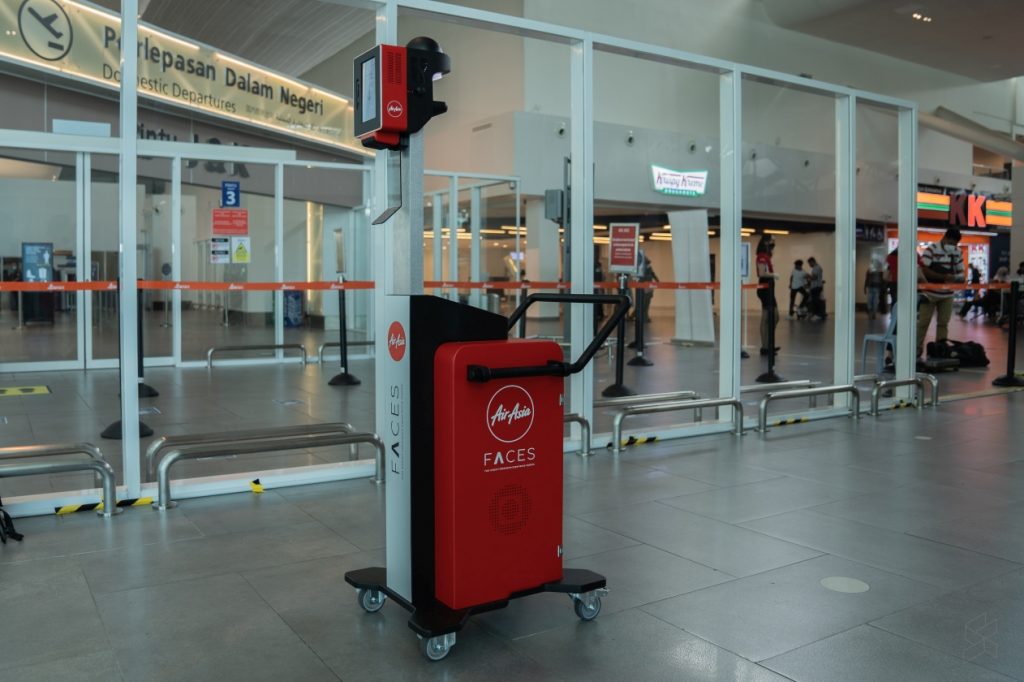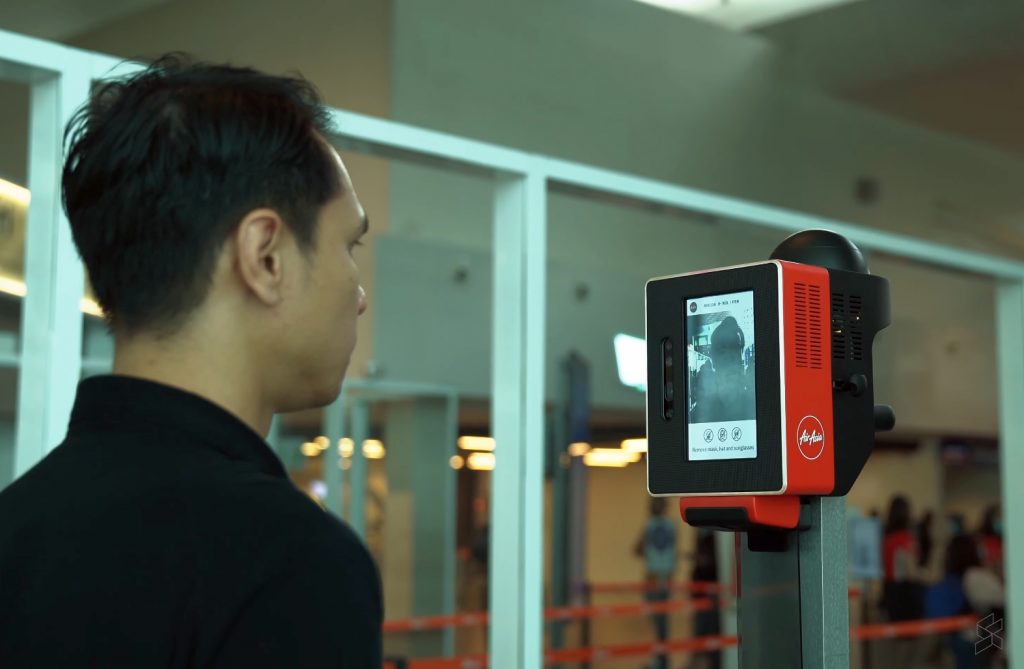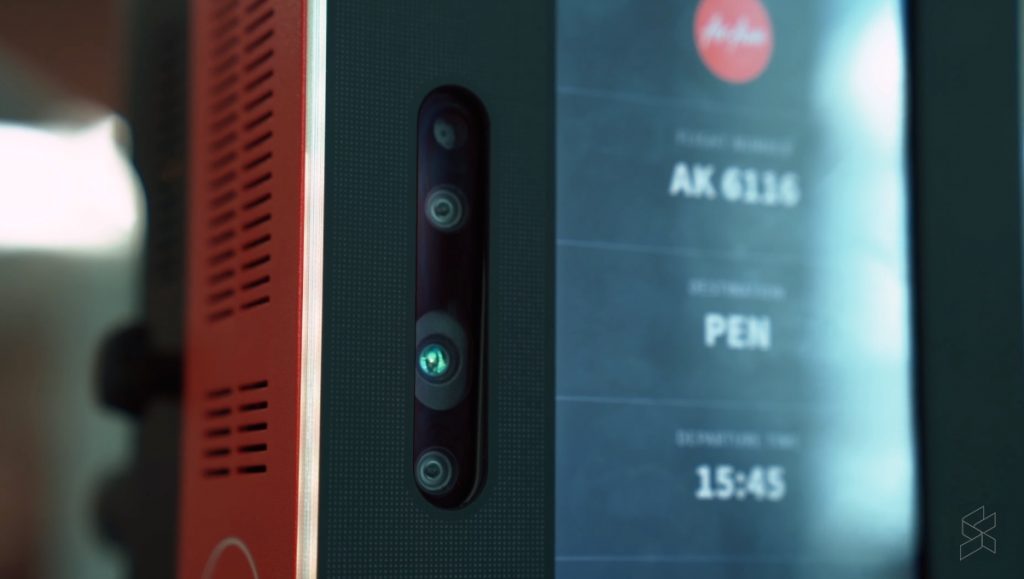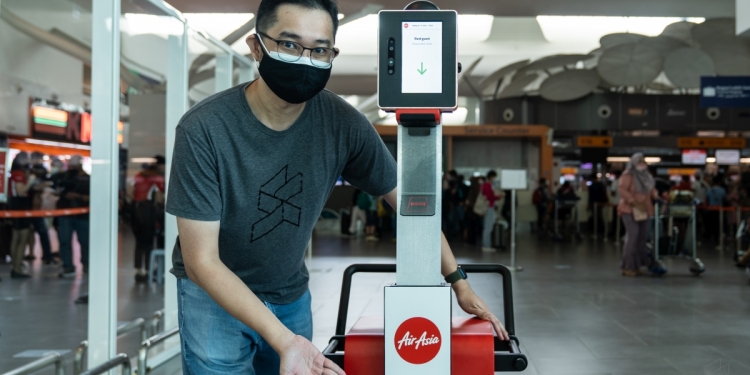AirAsia has started rolling out FACES (Fast Airport Clearance Experience System), a facial recognition system that you might be able to experience on your next flight. Essentially, your face is now your boarding pass and it aims to provide a seamless and contactless experience at the airport. FACES will be deployed starting 1st November at KLIA2 (Kuala Lumpur) in Malaysia for selected flights and it will be expanded to more airports in the region in 2022.

AirAsia’s journey to use facial recognition started in 2018 when it deployed the first generation of FACES at Senai International Airport, Johor Bahru. The original system required travellers to register their faces at a kiosk and AirAsia had to install an automated boarding gate system which is a permanent fixture.
For the latest version, AirAsia is now using a portable battery-powered solution that is easier to deploy in various areas throughout the airport. Instead of using a kiosk, passengers can now activate FACES on their smartphones using the AirAsia Super App. To get started, just go to Account, scroll down and select FACES. Passengers are required to take a selfie and snap a picture of their passport or IC.
Before using, passengers are also required to verify their documents at the service desk at the airport. This is a one-time process and passengers will need to verify again if there’s a change of travel document.

At the moment, AirAsia FACES is currently deployed at the boarding gates and the low-cost carrier plans to expand the feature to cover more touchpoints including pre-departure security check and self-baggage-drop. We are told the facial recognition works with passengers aged 12 years old and above.
Before the official rollout, AirAsia has provided us with an early demo of the system. Each passenger takes about 3-5 seconds to recognise and obviously, you’ll have to take off your mask to scan your face. If the system couldn’t recognise you, there will be the option to scan your digital boarding pass below the display. For the boarding process, it doesn’t seem to be significantly faster but it removes a contact point between crew and passenger, which helps to reduce the risk of COVID-19 infection.

AirAsia Group’s Chief Operating Officer (COO) Javed Malik told us that FACES is something they have been working on for about 3 years and it is their program for biometric travel. With FACES, you don’t need to take your passport, ID, or papers out anymore, and you can simply use your face to travel. The airline eventually wants to allow you to check-in, book a ticket, board the flight and even buy products in the future using your face.
When we asked about potential concerns of passengers removing their face masks during the scan, he said even if passengers need to take them off for breathing or eating, they don’t have a problem with that but they need their passengers to be courteous and be aware of others, as well as protecting themselves and their crew.
AirAsia still encourages all passengers to wear a face mask before, during, and after the flight. The COO also added that ultimately, the AirAsia crew will always wear a mask throughout the time they interact with their guests and it is something they believe is the right way to go while complying with the SOPs of each government.
On privacy and security of the system, Javed Malik said the partners they have worked with are world leaders in border control biometrics and they are one of the only companies that have privacy by design built into the software itself. He shared their partner, Vision-Box, has complied with international standards and that makes AirAsia compliant to every data standard in Europe, America, Australia, and Asia.
To see AirAsia FACES it in action, you can check out our video below. To learn more, you can check out AirAsia’s website.
Take note that interstate travel restrictions have been lifted for fully vaccinated travellers only. AirAsia will only allow fully vaccinated passengers on board their flights and guests are required to submit their vaccination details when they check-in via the app. Take note that additional travel requirements might be applicable when travelling to Sabah and Sarawak. The AirAsia Super App is available on Apple App Store, Google Play Store, and Huawei AppGallery.








